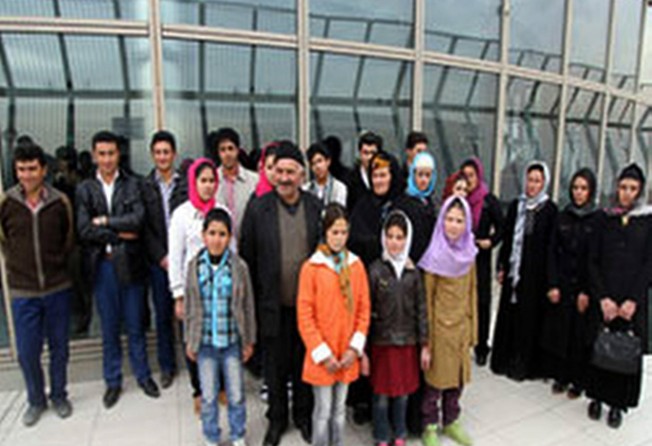
Iran’s plunging birth rate causes serious concerns for economic future
In one generation, Iran has been hit by one of the most rapid declines in fertility ever recorded

Qassem Ali-Loui was feted as a hero with interviews on state television, gifts, a tour of Milad Tower, Iran's tallest building, and a free lunch at its revolving restaurant together with his wife and 19 children.

Births in Iran dropped to 1.6 children per woman in 2012 from 6.4 three decades earlier, UN data shows. The rate fell below that needed to prevent the population shrinking after Iran, its finances pummelled by a 1980s war with neighbour Iraq, scrapped incentives for larger families, and more women chose to study longer or find work.
"In one generation, Iran registered one of the most rapid fertility declines ever recorded in human history," said Nicholas Eberstadt, a political economist at the American Enterprise Institute in Washington, who conducts demographic research. It took Europe 300 years to record a similar drop, he said. "I'm sceptical that this trend can be reversed," Eberstadt said.
Enter Ali-Loui, his wife of 41 years and their brood of 11 girls and eight boys, whose ages range from 35 to seven, according to the YJC news website. "In the old days, most of the rural families were farmers and having a child was seen as an asset," he told the site. "Families needed their children to work alongside them."
Restoring vigour to Iran's population of 75 million has become a priority just as President Hassan Rowhani seeks an economic lifeline through the lifting of trade curbs imposed over the nation's nuclear programme. The sanctions, some of which were lifted under a November interim deal, slashed oil revenues by half since 2012 and barred foreign investment.
In December, billboards with the messages "A single blossom is not spring", and "More children, better lives", appeared across Tehran.
They depicted a happy father and his three boys and one girl on a single bicycle, trailed by a sad-looking man with his only son. There was no sign of a mother in either poster.
Last year, Iran's average age rose to 27.8 years, up a decade from the 1979 Islamic revolution, and is forecast to reach 42.2 by 2050, higher than about 41 years predicted by Pew Research for the United States.
Tehran's 1.4 births per woman was below that of London or Paris, Eberstadt said.
"If we move forward like this, we'll be a country of elderly people in the not-too-distant future," Supreme Leader Ayatollah Ali Khamenei, a father of six, said in October. "There was an imitation of Western life and we inherited this."
Recognising the need for a dynamic future work force, Rowhani plans to raise maternity leave to nine months from six and grant new fathers 10 days off, at a cost of at least six trillion rials (HK$1.86 billion).
Women in Iran want careers, not large families, said Farzaneh Roudi-Fahimi, director for the Middle East and North Africa at the Washington-based Population Reference Bureau.
"In the 1970s, family planning clinics in rural areas gave the pill to the husband. Today, they hand out condoms to the wife," she said. "It shows you who's in control."
The trend was to have one child, or at the most two, said Golnaz, 29, an office manager in Tehran, who is single. "It takes time to have the financial stability to get married. It's an economic problem. If you have kids, you need money," she said.
Ali-Loui is from another age.
"Iranian women have made great strides," said Leila Alikarimi, a lawyer familiar with Rowhani's legislation. "The new push for larger families is an effort to send women back inside the home."